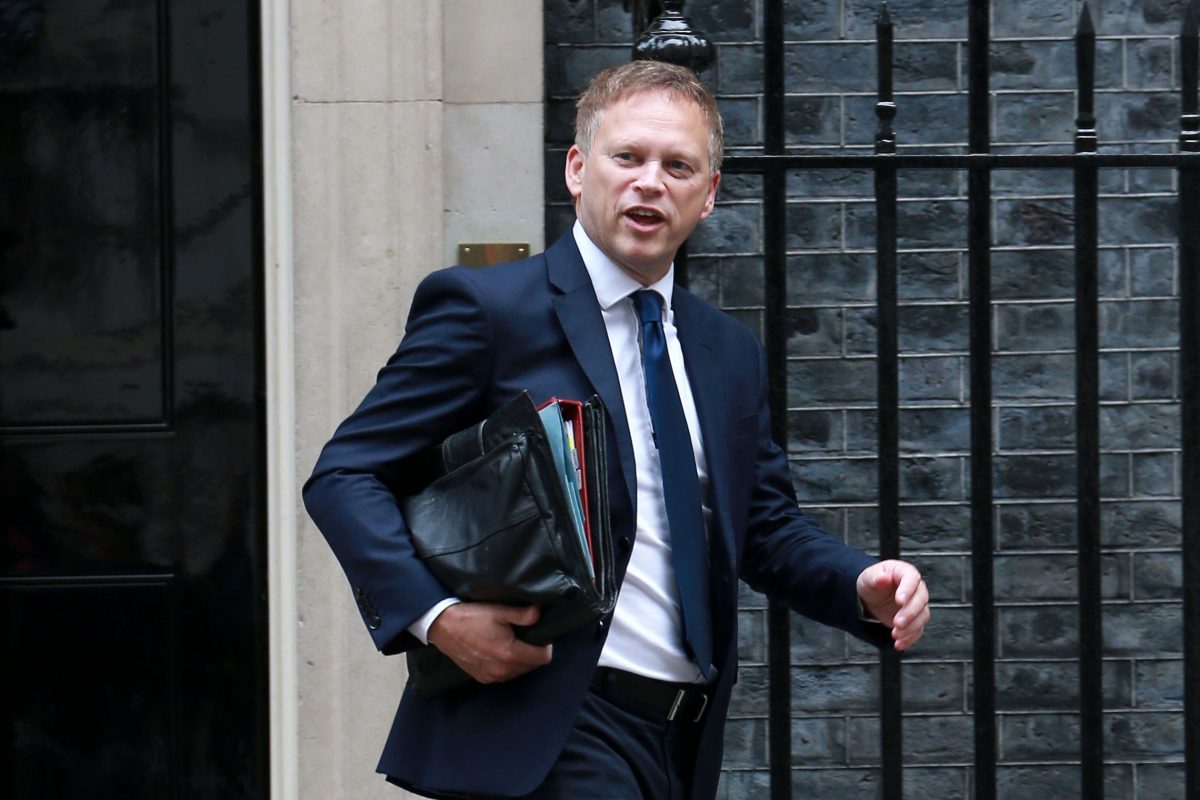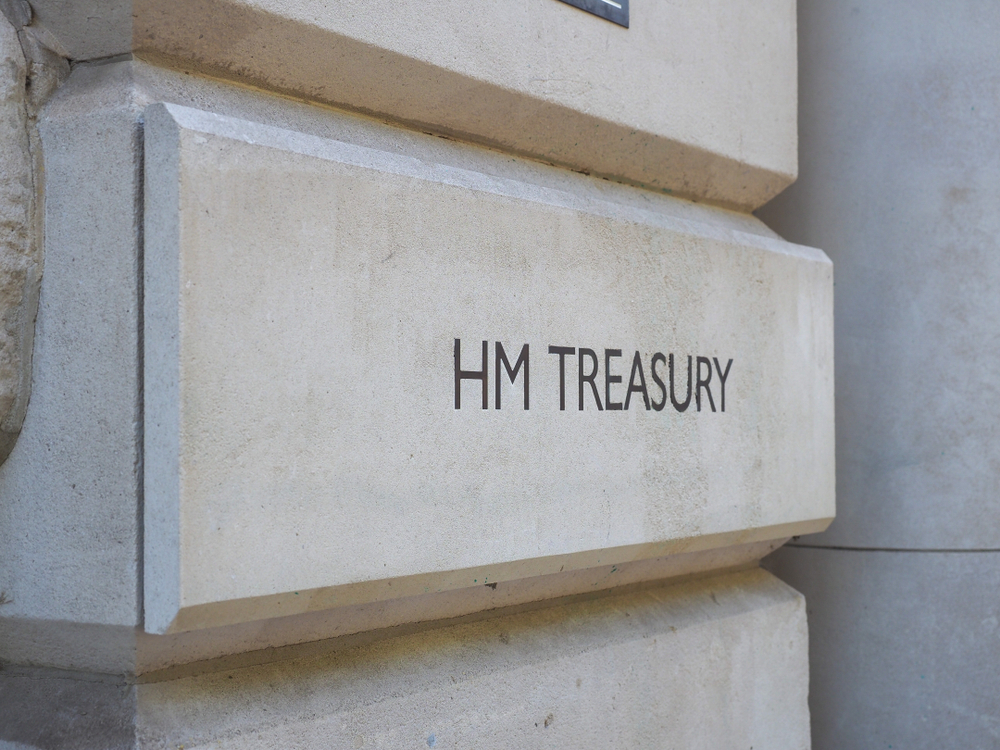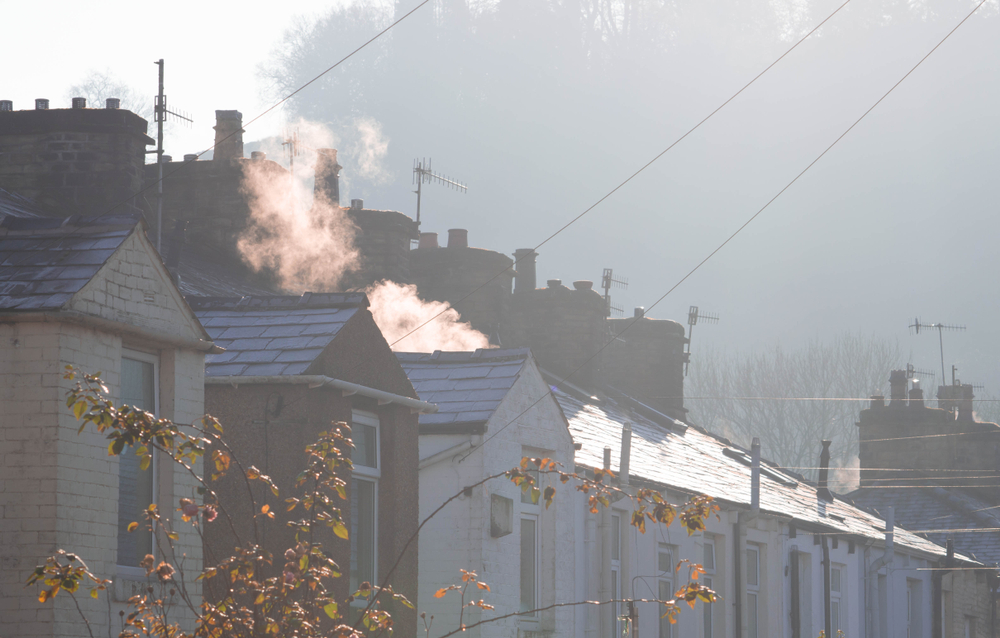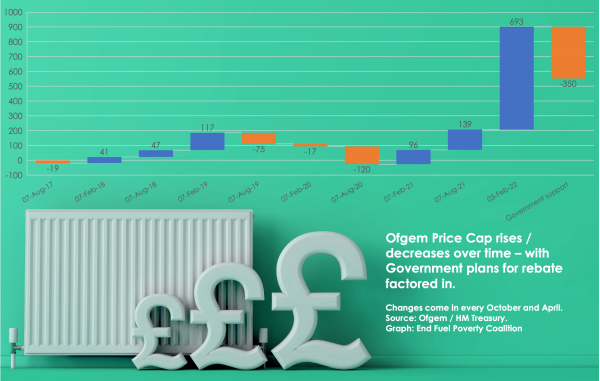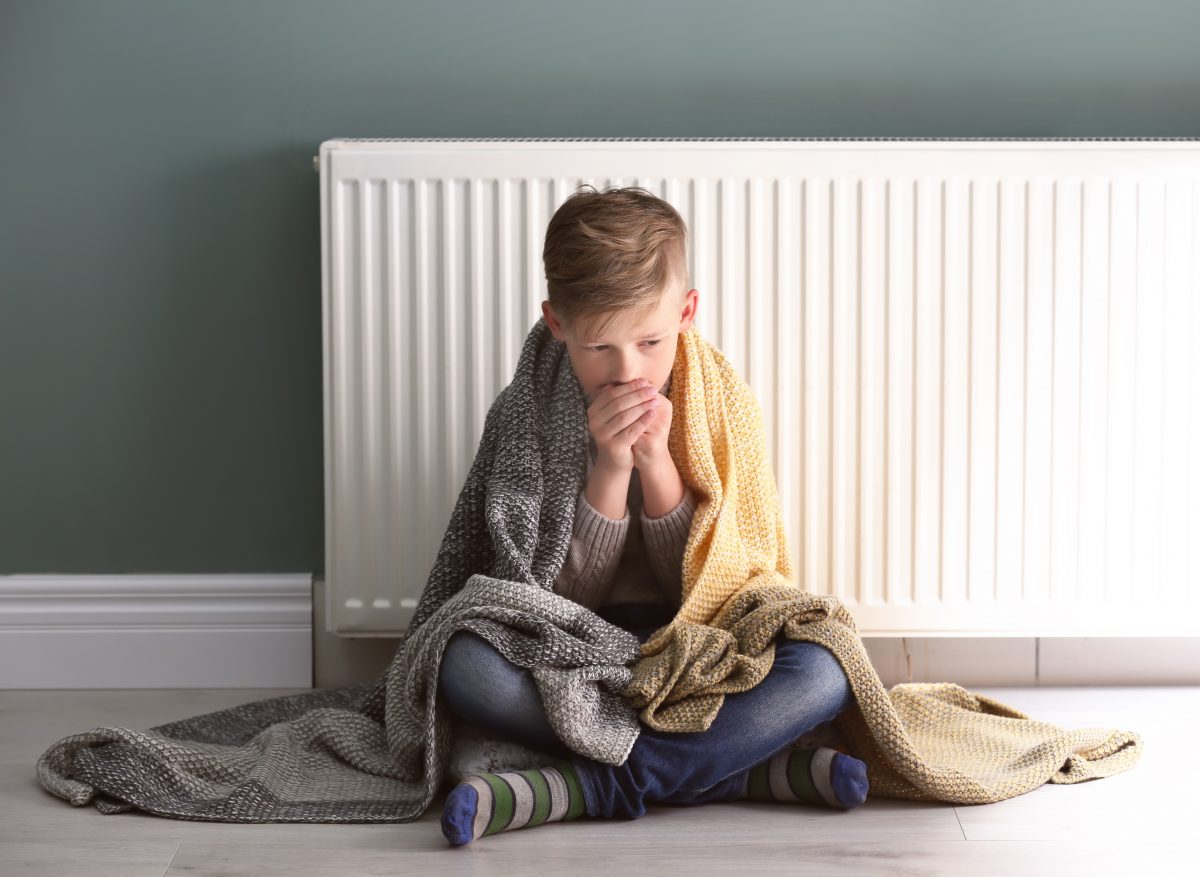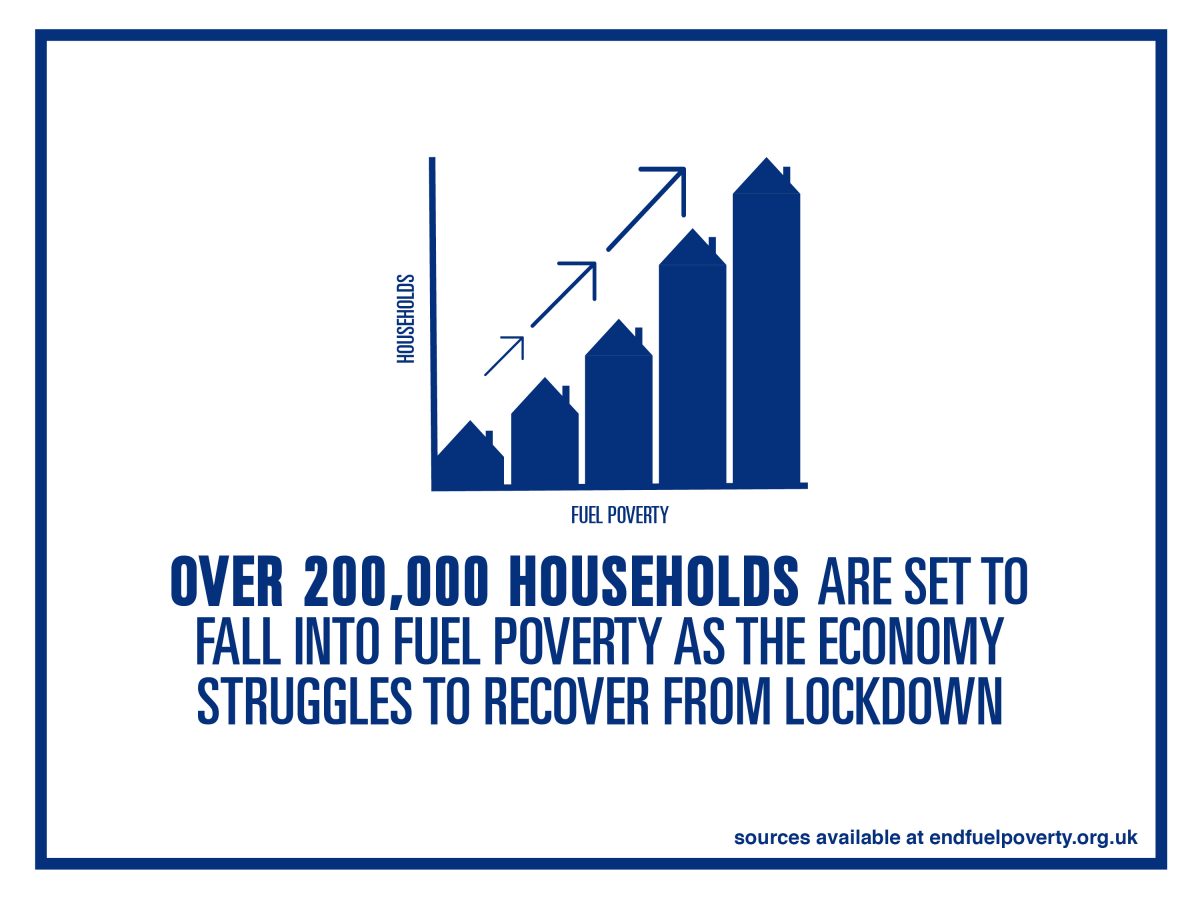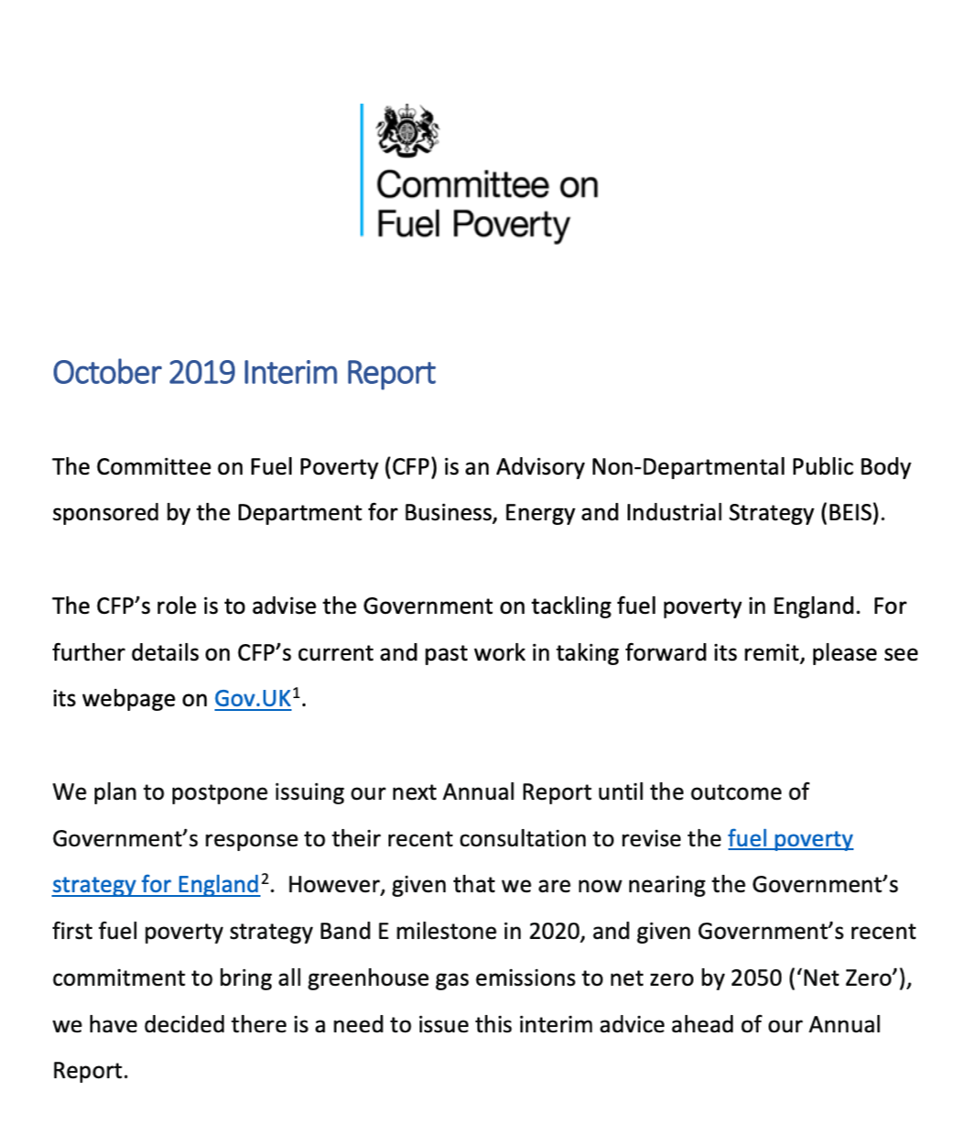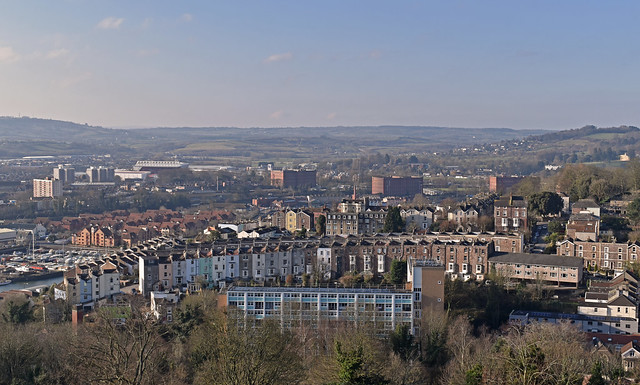Members of the End Fuel Poverty Coalition have been reacting to news of the latest energy price hikes and subsequent Government efforts to partially offset the consequences.
The latest estimates from the End Fuel Poverty Coalition predict that 6.3m households are expected to be in fuel poverty from 1 April 2022 – an increase of 2.1m on previous estimates which took account of the last Ofgem price rise in October 2021.
In addition, a group of civil society organisations have issued a united call for the Government to take further immediate action and a national protest is due to take place in London on Saturday.
Tamara Sandoul, Policy and Campaigns Manager, Chartered Institute of Environmental Health:
This has already been a difficult Winter for many households across the UK, with a cocktail effect of higher inflation and higher energy prices. This huge rise in the cost of energy will push many more people into fuel poverty and could put them at risk of health conditions caused by living in a cold home.
The Government also needs a long-term investment strategy into retrofitting homes to make these much more energy efficient and work to reduce its reliance on fossil fuels going forward.
William Baker from Solutions to Tackle Energy Poverty:
This announcement couldn’t come at a worse time. It coincides with a substantial increase to National Insurance, will inevitably exacerbate the cost of living crisis many low income households are facing and will increase reliance on food banks and fuel vouchers – already at record levels. We need a comprehensive package of Government support to both address high energy prices and improve the energy efficiency standards of our homes.
Connor Schwartz, climate lead at Friends of the Earth:
The skyrocketing price of gas will now push people into precarious financial positions, and spells disaster for those already struggling to meet the rising cost of heating their home. The government must ensure sufficient support for anyone already finding it hard, or who are at imminent risk, from these hikes.
We need to address the root cause and that means ending the cause of the crisis: reliance on gas. No mistake, this will be a year-on-year problem unless the government is radical now. The best time to invest in renewables and roll out a huge home insulation programme was 20 years ago, governments didn’t do it then, the next best time is right now.
Mike Thornton, chief executive, Energy Saving Trust:
We know the additional increase to the energy price cap, alongside higher living costs, will be extremely worrying for people across Britain. With the number of households who find themselves in fuel poverty expected to rise, Government must expand on emergency measures to support those most in need.
As well as the need for immediate action and short-term support, the current crisis emphasises the importance of improving the energy efficiency of the UK’s housing stock in the long-term. Alongside this, we need to invest significantly in renewable energy – including low carbon heating. Energy efficiency and more renewables are the best ways to protect everybody against volatile gas prices and rising bills in the long-term.
Tackling the current energy crisis must also go hand in hand with meeting net zero ambitions. Reducing our reliance on fossil fuels will minimise our exposure to the volatility of the global energy market and shape a greener and more affordable energy future. Alongside many other mission-led organisations, we’re asking for committed Government investment and clear action plans to scale up home insulation and renewable energy so we can be less reliant on gas in the future.
Fuel Poverty Action co-director Ruth London:
The energy market as it stands is not fit for purpose – it does not give people the energy they need to keep healthy, or the security to plan for the future in difficult times.
We’re asking that the government to introduce “Energy for All” – a universal, free amount of energy to cover people’s basic costs like heating, cooking, and lighting.
This would give us all the security we need, taking account of people’s actual needs according to their age, health, and housing.
Adam Scorer, Chief Executive of National Energy Action (NEA):
These energy crisis measures are woefully inadequate and will leave those on the lowest incomes and in the least efficient homes in deep peril.
Government had an exam question: How to protect the most vulnerable from a devastating rise in the cost of energy? While their plans are not without merit, they fail this test by turning away from targeted measures to help the poorest energy consumers.
We needed deep, targeted support for the most vulnerable. We have shallow, broad measures for all. That simply does not work.
The depth of support is not proportionate to the increases. A household paying by prepayment will still have a £500 increase when you take into account rises from October 2021 and April 2022.
The rebates on Bills and Council tax are not sufficiently targeted, too small and too complex.
We expect the government will have no choice but to return to the issue of spiralling fuel poverty and another price rise later this year. By then they’ll be playing catch-up and great harm will already have been done.
Ian Preston, director of household energy at the Centre for Sustainable Energy (CSE):
People are frightened of getting into debt. Someone we support on our advice line contacted us this morning to say they wouldn’t be able to put the heating on anymore. This is going to be the case for millions of people across the country.
We’ve calculated that this energy price increase each month is about the same as a low-income household would spend on groceries in a week. So to pay for the increase is essentially the same as asking them to go without food for a week every month.
We need to literally insulate people from the impact of future energy price increases! If we insulate our homes and buildings well, they’ll become more energy-efficient – there’s a range of measures available for different budgets and we can support people with finding grants.
Members also took to Twitter to express their concerns:

